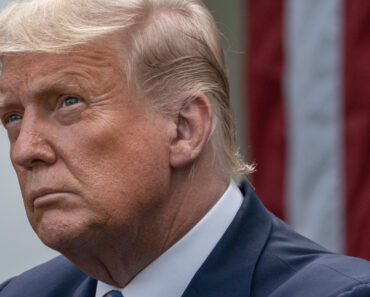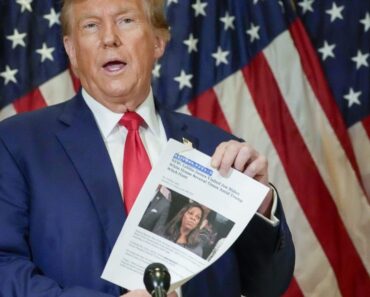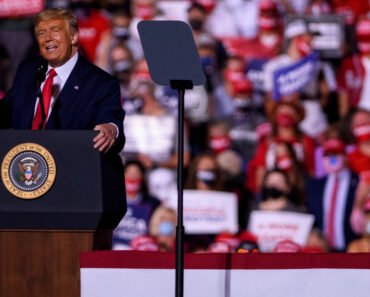This post was originally published on this site
https://fortune.com/img-assets/wp-content/uploads/2024/04/ilkay-e1712060561273.jpg?w=2048
Nike executives, who recently signed a $100 million deal to equip the German national football team, were offered a timely reminder of what not to do when designing the next jersey: Never produce anything that even bears a passing resemblance to Nazi-era symbols.
Its top rival, Germany’s Adidas, must now halt the sale of some athletic wear after Germany’s football association, known as the DFB, failed to notice the number ‘4’ on the back of a player’s jersey looked suspiciously like one half of the infamous lettering of the SS, Hitler’s death squads.
Since neo-Nazi groups often co-opt symbols that have no connections to extremism as a means of more easily recognizing each other, it is plausible that an Adidas-made German team jersey with the number 44 could become popular in the far-right scene.
“We have disabled the personalization of jerseys in our online store,” the company said in a statement to Fortune.
Up until now, consumers could pay Adidas for jerseys emblazoned with names and numbers of their choice, and eliminating the option will undoubtedly lead to the loss of some revenue.
Hallo @adidas / @adidasfootball,
ich habe gestern eine Presseanfrage gestellt und heute noch mal nachgefragt, aber leider keine Reaktion.Daher hier die Fragen öffentlich:
– Wird Adidas die Nummer 44 in ihrem Shop sperren?
– Wird Adidas Partnershops anweisen diese Nummer zu… pic.twitter.com/nwinZgCTnN— Tobias Huch (@TobiasHuch) March 28, 2024
Already reeling from last year’s anti-semitism scandal around former Yeezy partner Kanye West, Adidas blamed the DFB and the latter’s licensee, 11teamsports, for the typographical fiasco.
It vehemently denied allegations there was any intention behind the design and said the company and its staff comprising around 100 different nationalities supported diversity and inclusion.
“Any attempts to promote divisive or marginalizing views are not a part of our brand values,” it said, adding its online store has eliminated the option for personalizing German jerseys.
On Sunday, the DFB said neither it, 11teamsports nor UEFA, the organizing body of this summer’s European championship, had spotted the similarity to the SS lettering during the design and approval phase—in part because player numbers for the competition only go as high as 26.
Nonetheless, it will submit with 11teamsports, responsible for the typography, a new design for the number 4 to UEFA after the issue spread on social media.
“Alone the public discussion over whether there is a similarity visually is enough for us to launch a new process,” the German FA said in a statement to tabloid Bild.
11teamsports did not respond to a request for comment from Fortune.
Rare symbol of national pride
The affair is a painful embarrassment for the DFB, playing host to the European Championships tournament held only once every four years.
Along with the Deutschmark and the original Volkswagen Beetle, the FA’s national team is one of the three symbols of the country’s rebirth following its Nazi past thanks to a shock 1954 World Cup victory over a heavily favored Hungarian team.
Nach Hinweisen aus der Community zum Trikotdesign: Der DFB prüft die Nummern 0–9 und reicht anschließend die Nummern 1–26 bei der UEFA zur Prüfung ein. Keine der beteiligten Parteien hat im Entstehungsprozess des Trikotdesigns eine Nähe zu einer NS-Symbolik gesehen. (1/2)
— DFB (Verband) (@DFB) April 1, 2024
Supporting the team during major international football tournaments is widely considered the only time it is acceptable to show outward symbols of national pride and identity in Germany.
The 2006 World Cup, the last time the country hosted a major tournament, is still referred to as the “summer fairy tale”, even though it ended with a third-place finish for the squad.
That is in large part because the country collectively agreed it was okay for everyone to drape itself in a sea of black, red and gold-hued patriotism under the maternal eye of its totemic fan-in-chief, Angela Merkel.
A decade of poor football played since the team’s 2014 World Cup victory in Brazil has, however, seen support in Germany for the DFB and the team more broadly suffer.
It was at this point that Adidas lost out to Nike last month in a deal that would have extended its near 80-year sponsorship with the squad.
The partnership harkens back to the 1954 victory and founder Adi Dassler’s exchangeable shoe studs that gave skipper Fritz Walter and his team better traction on the rain-slicked pitch that fateful day in Bern.
Germany’s own federal health minister broke with usual protocol by openly criticizing the DFB for its decision to end the long-standing association in favor of its U.S. arch-rival.




